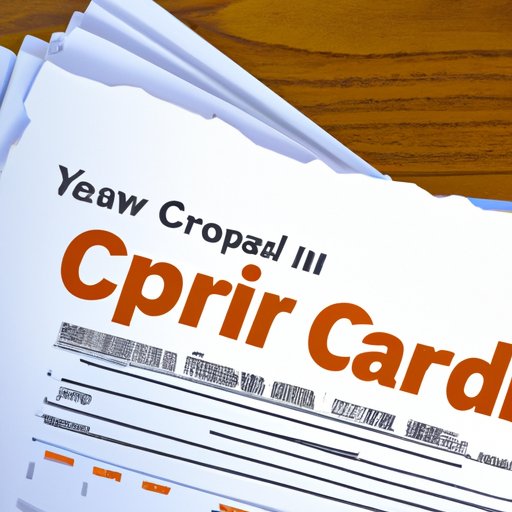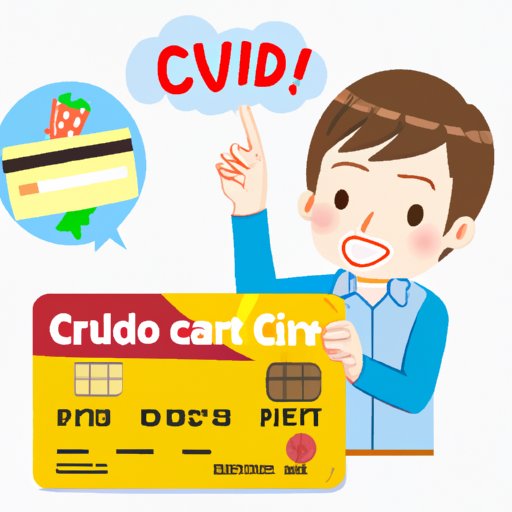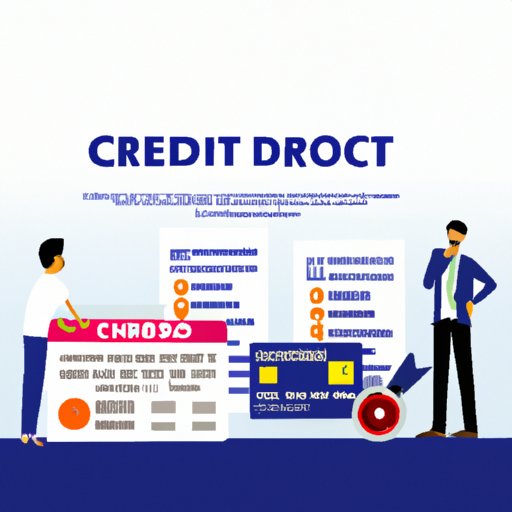Introduction
Your credit is an important factor in your overall financial health. It can determine whether you can get approved for loans or credit cards, as well as the interest rates you’ll receive on those products. A low credit score can also make it more difficult to rent a home or even secure employment. That’s why it’s important to know how to fix your credit if it’s not where you want it to be.
What is Credit?
Credit is an agreement between a lender and borrower that allows the borrower to access funds for a certain amount of time. The borrower then pays back the loan, plus interest, by the due date. As you make payments on your loan, the lender reports your activity to the three major credit bureaus – Experian, Equifax, and TransUnion. This information is used to create your credit report and credit score.
Why is it Important to Fix Your Credit?
Your credit score is a three-digit number that ranges from 300 to 850 and is based on the information in your credit report. This score is used by lenders to determine your creditworthiness. A higher credit score means you’re more likely to be approved for loans and credit cards, and you’ll receive better interest rates. A lower credit score could mean you’ll have a harder time getting approved, or you might be charged a higher interest rate.
According to a 2018 survey conducted by the Consumer Financial Protection Bureau, approximately 26 million Americans have a credit score below 580, which is considered “poor” credit. If your credit is in this range, it’s important to take steps to improve it. The good news is, there are several things you can do to start improving your credit right away.

Obtain a Copy of Your Credit Report
The first step to fixing your credit is to obtain a copy of your credit report. This will give you an overview of your current credit situation and help you identify any inaccuracies or areas that need improvement.
How to Get a Free Copy of Your Credit Report
Under federal law, you’re entitled to one free copy of your credit report from each of the three major credit bureaus every 12 months. You can request your free report online at AnnualCreditReport.com. You can also call 1-877-322-8228 or mail a completed Annual Credit Report Request Form to: Annual Credit Report Request Service, P.O. Box 105281, Atlanta, GA 30348-5281.
What Information is Included in Your Report?
Your credit report includes a variety of information about your credit history, including payment history, accounts in collections, public records, and credit inquiries. It also includes personal information such as your name, date of birth, address, and social security number. All of this information is used to calculate your credit score.

Dispute Any Inaccuracies on Your Report
Once you have a copy of your credit report, it’s important to review it for any inaccuracies. Mistakes happen, and it’s possible that there are errors on your report that could be damaging your credit score.
How to Identify Errors
Carefully review your credit report for any inaccurate or outdated information. Common mistakes include incorrect payment information, incorrect account balances, duplicate accounts, and accounts that don’t belong to you. If you find any errors, it’s important to dispute them with the credit bureau.
How to File a Dispute with the Credit Bureau
If you find any errors on your credit report, you can file a dispute with the credit bureau. The process varies depending on which bureau you’re filing with, but generally you’ll need to provide proof of the error and explain why it should be removed. Once the dispute is filed, the credit bureau has 30 days to investigate and respond.
Pay Down High Balances
High balances on your credit cards can have a negative impact on your credit score. Lenders view high balances as a sign of financial instability, so it’s important to pay down your balances as much as possible.
Strategies for Paying Down Debt
If you’re struggling to pay off your debt, there are a few strategies you can use to help you get out of debt faster. One strategy is to focus on paying off the card with the highest interest rate first. Another option is to transfer your balance to a card with a 0% promotional rate. You can also try negotiating with your creditors to reduce your interest rate or waive late fees.
The Benefits of Paying Down High Balances
Paying down your high balances can have a positive impact on your credit score. According to a study by the Federal Reserve Bank of New York, people who paid down their credit card balances saw an average increase in their credit scores of nearly 20 points. Paying down your debt can also help you save money in the long run by reducing the amount of interest you pay.
Make All Payments on Time
Making your payments on time is one of the most important factors in determining your credit score. Late payments can have a significant negative impact on your score, so it’s important to make sure you’re making all of your payments on time.
The Negative Effects of Late Payments
Late payments can have a serious effect on your credit score. According to a study by FICO, just one 30-day late payment can cause your score to drop by up to 110 points. Making multiple late payments can cause even more damage, so it’s important to make sure you’re always making your payments on time.
Tips for Making Sure You Pay On Time
If you’re having trouble remembering when your payments are due, there are a few things you can do to make sure you don’t miss any payments. You can set up automatic payments from your bank account, or you can set calendar reminders for yourself. You can also sign up for text message reminders from your bank or credit card company.

Avoid Taking Out New Credit
When you’re trying to improve your credit, it’s important to avoid taking out new credit. Opening new credit cards or taking out loans can have a negative impact on your credit score, so it’s best to avoid taking on any new debt while you’re working to improve your credit.
Why You Should Avoid New Credit
Opening new lines of credit can have a negative impact on your credit score because it increases your credit utilization ratio. Credit utilization is the amount of available credit you’re using compared to the total amount of credit you have. Generally speaking, the lower your utilization, the better. So it’s best to avoid taking on new credit while you’re working to improve your score.
Alternate Options for Meeting Your Financial Needs
If you need to borrow money, there are other options besides taking out a loan or opening a new credit card. For example, you can open a secured credit card, which requires a cash deposit that acts as collateral for the card. You can also look into personal loans from online lenders, or consider asking family or friends for a loan.
Seek Professional Help
If you’re still having trouble improving your credit, you may want to consider seeking professional help. There are a variety of professionals who can help you manage your debt, negotiate with creditors, and develop a plan to improve your credit.
What Kinds of Professionals Can Help You?
There are a variety of professionals who can help you manage your debt and improve your credit. These include credit counselors, debt settlement companies, and bankruptcy attorneys. Each type of professional offers different services, so it’s important to research your options and choose the one that best fits your needs.
Benefits of Seeking Professional Help
Working with a professional can help you develop a plan to improve your credit and manage your debt. They can also provide valuable advice and resources to help you stay on track. Additionally, many professionals offer services at a discounted rate or even for free, so you can get the help you need without breaking the bank.
Conclusion
Improving your credit can seem like a daunting task, but it doesn’t have to be. By following these steps, you can start to see results in no time. Obtain a copy of your credit report, dispute any inaccuracies, pay down high balances, make all payments on time, avoid taking out new credit, and seek professional help if needed. With a little bit of effort, you can start to turn your credit around and get back on track.
Summary of Key Takeaways
Improving your credit can seem overwhelming, but it doesn’t have to be. Start by obtaining a copy of your credit report, disputing any inaccuracies, paying down high balances, making all payments on time, avoiding taking out new credit, and seeking professional help if needed. With a little bit of effort, you can start to turn your credit around and get back on track.
Final Thoughts
Your credit is an important part of your financial health, so it’s important to take steps to improve it if it’s not where you want it to be. By following the steps outlined in this guide, you can start to repair your credit and get back on track.
(Note: Is this article not meeting your expectations? Do you have knowledge or insights to share? Unlock new opportunities and expand your reach by joining our authors team. Click Registration to join us and share your expertise with our readers.)
